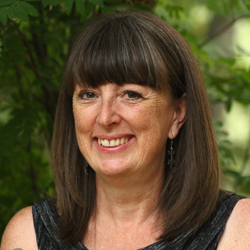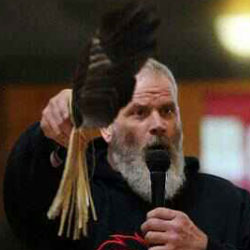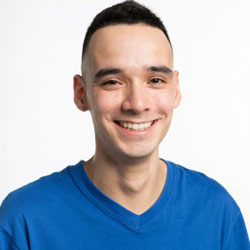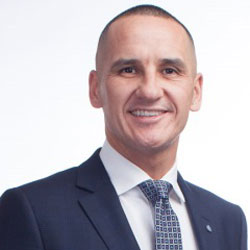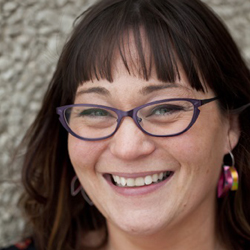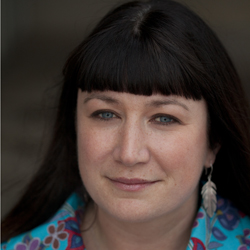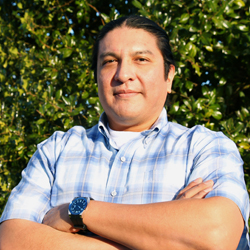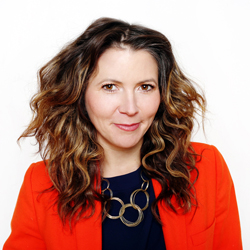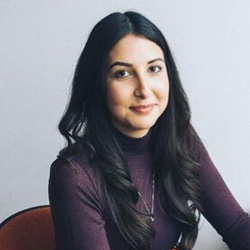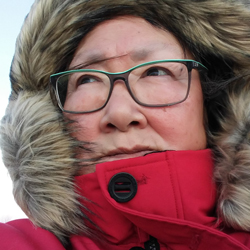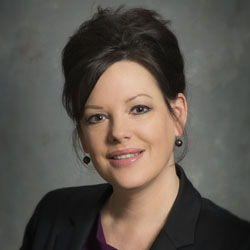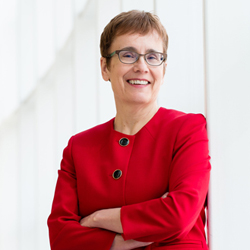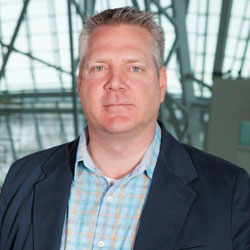2019 Speakers
Indigenous and Human Rights: An Executive Leadership Program
The following individuals will share their expertise and insight with participants during the program.
Charlene Bearhead
Education Lead
Moose Hide Campaign
|
Charlene Bearhead is an education activist with 30 years of regional, national and international experience. She currently serves as the Education Lead for the Moose Hide Campaign and works as a Program Development Consultant for the Canadian Museum for Human Rights (CMHR). Bearhead also serves on the CMHR Indigenous Education Working Group, the National Film Board Education Advisory and was the Education Advisor on the Indigenous Peoples’ Atlas of Canada. Bearhead maintains her annual volunteer role as the vision keeper for the National Indigenous and Reconciliation Education Network Gathering. Most recently, she served as Education Coordinator for the National Inquiry into Murdered and Missing Indigenous Women -- directly following her time as the first Education Lead for the National Centre for Truth and Reconciliation. Bearhead also coordinated Education Days for the Truth and Reconciliation Commission of Canada. |
|
Mitch Bourbonniere
Community Activist
Ogijiita Pimatswin Kinamatwin (OPK)
| Mitch Bourbonniere is a community activist and volunteer. As a pipe carrier and 28-year sundancer, he has kept the fire for many ceremonial events. He helped lobby in the 1990s for the creation of Canada's first Indigenous high school, Children of the Earth. Over the years, Bourbonniere has formed a healing community offering cultural programs for Indigenous youth. He also facilitates the Ogijiita Pimatiswin Kinamatwin program that supports adults involved in gangs and the justice system in making positive changes. He regularly visits Manitoba prisons to provide support. Bourbonniere also serves as an Elder and acts as a consultant to many other community groups and social service organizations. Bourbonniere has received the Winnipeg Police Service’s Honoured Citizen award, the Royal Canadian Humane Assorication’s Bronze Medal for Bravery, and the Governor General’s Meritorious Service Medal. He has a Master’s degree in Social Work and is a university instructor. |
|
Michael Redhead Champagne
Founder
Aboriginal Youth Opportunities (AYO!)
| Michael Redhead Champagne, born and raised in Winnipeg’s North End, is an award-winning community organizer, public speaker and a proud member of Shamattawa First Nation. As a founder of AYO! (Aboriginal Youth Opportunities), he is committed to a wide variety of community initiatives including Meet Me at the Bell Tower, AYO Politix, ARROWS Youth Engagement Strategy, 13 Moons Harm Reduction & Fearless R2W. In 2018, Champagne received a Kids Help Phone Regional Volunteer Award & in 2017 was recognized with a Meritorious Service Decoration from the Governor General of Canada. Champagne has received a Manitoba Aboriginal Youth Achievement Award and was recognized as a CBC Manitoba Future 40 leader, a Manitoba Hero, and a Future Leader of Manitoba. He has been included as part of the Bell Let’s Talk mental health movement and is known for his straight up and heartfelt style that will leave you moved, inspired and ready for action. |
|
Kevin Chief
Vice President
Business Council of Manitoba
|
Kevin Chief is vice president at the Business Council of Manitoba. Born and raised in Winnipeg’s North End, he has considerable public sector and community experience. He spent six years as a member of the Legislative Assembly of Manitoba, representing Point Douglas, and previously worked in the field of education. Growing up, Chief quickly learned to spot people who could see potential where others might only see hardship -- everyday people like teachers, coaches and business owners who helped him see that there are always opportunities to give back, no matter who you are or where you are from.Chief and his wife Melanie have three young sons: Hayden, Kellan, and Daxton. He is also known as a high steppin’ square dancer as part of the Norman Chief Memorial Dancers. |
|
Dr. Jaime Cidro
Associate Anthropology Professor, Canada Research Chair in Health and Culture
The University of Winnipeg
|
Dr. Jaime Cidro’s area of research is socio-cultural determinants of Indigenous health. Dr. Cidro is of mixed Anishnawbe and British ancestry. She is the principal investigator in two research projects looking at Indigenous doulas as cultural interventions for First Nations women who travel for birth and a leads a Network Environments for Indigenous Health Research project looking at Indigenous research ethics. Her main areas of teaching and research include Indigenous maternal and child health, social determinants of health, medical anthropology, applied anthropology and Indigenous food sovereignty. Dr. Cidro is a Canada Research Chair in Health and Culture and the Associate Director of Urban Aboriginal Knowledge Network Prairie Research Centre. |
|
Mary Courchene
Seven Oaks School Division
|
Mary Courchene is a residential school survivor. She was born and raised on the Sagkeeng First Nation and moved away in 1971 attaining degrees in Arts and Education from the University of Brandon and the University of Manitoba. Mary’s career journey is extensive, including teaching in elementary and high schools, working as a school counselor and later as a school administrator. She was an Assistant Superintendent within the Department of Indian and Northern Affairs (INAC) and the first Principal of Children of The Earth High School (the first urban Aboriginal high school). She has been active in serving the urban community on various boards such as the Aboriginal Advisory Committee to the Winnipeg Police Service, Board of Directors for the St. Amant Centre and the initial Chair of the Legacy Committee for the 1999 Pan Am Games. She also was a founding member of Manitoba First Nation Education Resource Centre (MFNERC). She has received many honours and awards including a a YMCA/YWCA Woman of the Year award and was the Aboriginal Community Educator of the Year in 2001. She is an honored grandmother of the Keep the Fires Burning, and was awarded with a sacred shawl with community recognition in 2008. She received the Canadian Teachers’ Federation 2014 Outstanding Aboriginal Educator Award. Mary Courchene was the Dean of Aboriginal Education at Red River College from 2000 until she retired. She is the Elder in Residence for Seven Oaks School Division and has expertise in residential school curricula especially at the middle school and high school levels. |
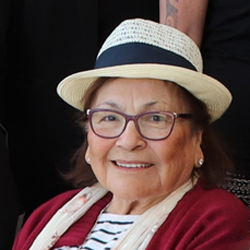 |
Aimée Craft
Assistant Professor
University of Ottawa
|
Aimée Craft is an Indigenous lawyer (Anishinaabe-Métis) and Assistant Professor in the Faculty of Common Law at the University of Ottawa. Since 2013, Craft has led research on Anishinaabe water law. Her award-winning 2013 book, Breathing Life Into the Stone Fort Treaty, focuses on understanding and interpreting treaties from an Anishinaabe inaakonigewin (legal) perspective. In 2016, she was voted one of the top 25 most influential lawyers in Canada. Craft is the former Director of Research at the National Inquiry into Missing and Murdered Indigenous Women and Girls and the founding Director of Research at the National Centre for Truth and Reconciliation. In her decade of legal practice at the Public Interest Law Centre, she has worked with many Indigenous peoples on land, resources, human rights and governance issues. She is past chair of the Aboriginal Law Section of the Canadian Bar Association and a member of the Speaker's Bureau of the Treaty Relations Commission of Manitoba. |
|
Harley Eagle, Cultural Safety Facilitation Consultant
Harley Eagle Facilitation
|
Harley Eagle is a well-seasoned facilitator in the field of restorative conflict transformation and issues pertaining to Indigenous Peoples and reconciliation. He also works to train professionals to engage courageously with Indigenous Peoples and raise issues in culturally safe ways. Eagle draws upon over 20 years of experience across several civil society sectors and borders to inform the people he works with about innovative and creative processes that focus on relational best practices. He looks to his Indigenous ancestry to design and facilitate workshops and activities that strive to recall and re-claim Indigenous understandings of life. Currently, he works with clients and organizations that include government social service and advocacy agencies, health care, private-sector companies, faith-based agencies, policing and non-profit organizations. Eagle travels extensively meeting with Indigenous Peoples and is often invited to present nationally and globally at conferences and with organizations pertaining to his work. |
|
Michelle Kuly
Principal, Blueprint
|
Michelle’s experience in public engagement, strategic planning and facilitation is the foundation of Blueprint. Over the past 15 years, she has developed a deep understanding of the dynamics of engagement and paired it with remarkable entrepreneurial vision. She has used this perspective to build a team and business offering unmatched services to serve our clients’ needs. Michelle designs dynamic and productive processes for stakeholder and public participation that get results by creating understanding, buy-in and dialogue around challenging issues. Her leadership ensures our clients receive standout service, marked by innovative engagement tactics. Her approach is grounded in reality and focused on results—planning, designing and managing projects to engage stakeholders; unpacking complex issues; and improving outcomes around important initiatives. Michelle is the founding chair of the Prairies Chapter of the International Association for Public Participation (IAP2) and is a practicing member of the International Association of Facilitators (IAF) and IAP2. |
|
Christine M'Lot, BA BEd, MED in progress
|
Christine M’Lot is an Anishinaabe educator from Winnipeg, Manitoba. She is currently a teacher at the University of Winnipeg Collegiate, specializing in English Language Arts, Global Issues and Truth and Reconciliation Studies. Christine has experience working with children and youth in multiple capacities including child welfare, children’s disAbility services and Indigenous family programming. She is the co-founder of Red Rising Education, which creates Indigenous educational resources for teachers. Christine is currently pursuing her master’s degree in World Indigenous Studies at Queen’s University and is focusing her research on traditional theories and practices of wellness in Indigenous societies. |
|
Martha Peet
Freelance Interpretor/Translator (Inuktitut)
| Martha Peet was born in in an igloo in Taloyoak where there were only four other families living at the time. Martha grew up with parents who were really closely tied to the land. Her parents were “nomads” and found it difficult to stay in one place for a long period of time. As a result she grew up travelling with them by dogsled. Her father would travel for two to three weeks at a time on dog slide to hunt for caribou, fish or seal and the community would celebrate with a feast once he returned. Taloyoak means “big shield” in Inuktitut and was previously known by settlers as Spence Bay. Martha has lived across Canada and has spent the last 27 years in Winnipeg. At age 55 she returned to school and graduated from the Urban Circle Training Program as a Nursing Assistant. Martha has a son and a daughter and is the author of the Inuktitut Pocket Book. She is a Freelance Interpreter and Translator in Inuktitut. |
|
Jennifer Moore Rattray
Executive Director
National Inquiry into Missing and Murdered Indigenous Women and Girls
| Jennifer Moore Rattray, MPA is Executive Director of the National Inquiry into Missing and Murdered Indigenous Women and Girls. She is currently on leave from her role as an Assistant Deputy Minister in the Department of Families for the Province of Manitoba. In that role, she has been responsible for programs that support some of Manitoba’s most vulnerable citizens. Rattray also spent a decade at the University of Winnipeg, becoming its first Associate Vice-President of Indigenous, Government and Community Affairs. A proud member of Peepeekisis Cree Nation, she was a previously an award-winning TV journalist, and is one of the first Indigenous women to anchor the TV news in Canada. Rattray currently sits on the boards of CBC/Radio-Canada, Canadian Feed the Children, the Manitoba Museum Foundation, and the Conference Board of Canada’s Indigenous Peoples Roundtable on Skills and PSE. |
|
|
|
Dr. Annette Trimbee
President and Vice-Chancellor
The University of Winnipeg
| Dr. Trimbee became President and Vice-Chancellor at UWinnipeg in August 2014. UWinnipeg is located on Treaty One territory in the heart of the Métis homeland, and welcomes 10,000 full- and part-time students. UWinnipeg is committed to integrating Indigenous perspectives within the academy, and works closely with the surrounding community to support inner-city children in developing a university-bound identity. Dr. Trimbee's key accomplishments to date include completing a university-wide strategic directions plan, and introducing an Indigenous Course Requirement for all undergraduate students, among the first in Canada. Dr. Trimbee serves on the boards of Universities Canada, the voice of Canadian universities at home and abroad; and USports, which oversees sports at 56 Canadian universities. Previously, Dr. Trimbee served as Deputy Minister of several departments in the Alberta government, including Treasury Board and Finance, Service Alberta and Advanced Education and Technology. She holds a PhD from McMaster University in Ecology. |
|
Dr. John Young
President and CEO
Canadian Museum for Human Rights (CMHR)
| Passionate about democracy and human rights education, Dr. Young has renewed the Museum’s efforts to engage with Canadians online and serve as a national and international hub for human rights learning. He has also been keenly engaged with concepts of reconciliation between Indigenous and non-Indigenous people in Canada, working to ensure the CMHR can play a valuable role as a national museum. Previously, Dr. Young was an Associate Professor of Political Science at the University of Northern British Columbia (UNBC), where he also served as Interim Provost and Vice President Academic and as Dean of the College of Arts, Social and Health Sciences. Recognized by UNBC for his teaching excellence, he has been a visiting professor in the United States and Japan and has lived and worked in Germany and Russia. Dr. Young has also worked with the Canadian Parliamentary Centre, as a director of the CBC, and as a member of the CMHR Board of Trustees from 2012 to 2015, when he was appointed to his current role. |
|
